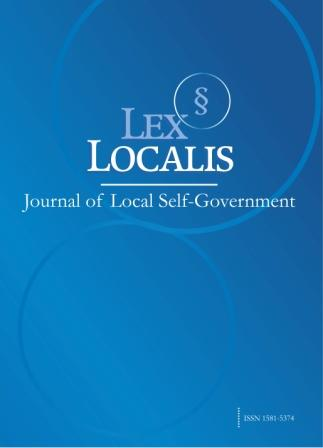THE OVERSIGHT ROLE OF THE CONSTITUTIONAL COURT IN ALGERIA
DOI:
https://doi.org/10.52152/sb70y652Ključne besede:
Oversight of the Constitutionality of Laws, Constitutional Council, Constitutional Court, Constitutional AmendmentPovzetek
This comprehensive abstract aims to shed light on the essence of the article, enticing readers to gain a clear understanding of the research problem, its primary objectives, and the achieved results. The focus is on the regulatory competencies of the Constitutional Court )Mahkama Dustouria( under the constitutional amendmen t of The establishment of the oversight mechanism for the constitutionality of laws is a crucial issue in various world constitutions, revealing the adoption of two distinct approaches. This involves either judicial oversight, where the judicial authority is responsible for examining the constitutionality of laws, known as subsequent oversight, or through a political body entrusted with this task, referred to as prior oversight. Algeria, like many other countries, has made significant strides practicing and establishing this oversight, starting with its first constitution in 1963 by establishing the Constitutional Council, which adopted political oversight as a fundamental principle. The set of rights and fundamental freedoms for individuals has gained international attention, leading to the signing of numerous international agreements to protect and enhance them. This prompted the Algerian constitutional founder's interest, leading to innovative ways to protect these rights by granting individuals the right to oversee the constitutionality of laws through appeals before judicial authorities, as established by the constitutional amendment of 2016. The research aims to demonstrate that despite the recent amendments regarding oversight of the constitutionality of laws, specifically the shift from the Constitutional Council to the Constitutional Court, the constitutional founder retained several elements of the Constitutional Council, especially in the supervisory role entrusted to the Constitutional Court, specifically the notifying authorities. The lack of granting the Constitutional Court the power of automatic notification makes it an entity with similar characteristics to the Constitutional Council. Moreover, the shift towards adopting judicial oversight will position the Constitutional Court as a primary judicial body with an active role in overseeing the constitutionality of laws. On another note, the Constitutional Court plays a prominent role in presidential and legislative elections, having full authority to decide on appeals, either accepting or rejecting them in whole or in part, and announcing the results.
Prenosi
Objavljeno
Številka
Rubrika
Licenca
Avtorske pravice (c) 2025 Lex localis - Journal of Local Self-Government

To delo je licencirano pod Creative Commons Priznanje avtorstva-Nekomercialno-Brez predelav 4.0 mednarodno licenco.








